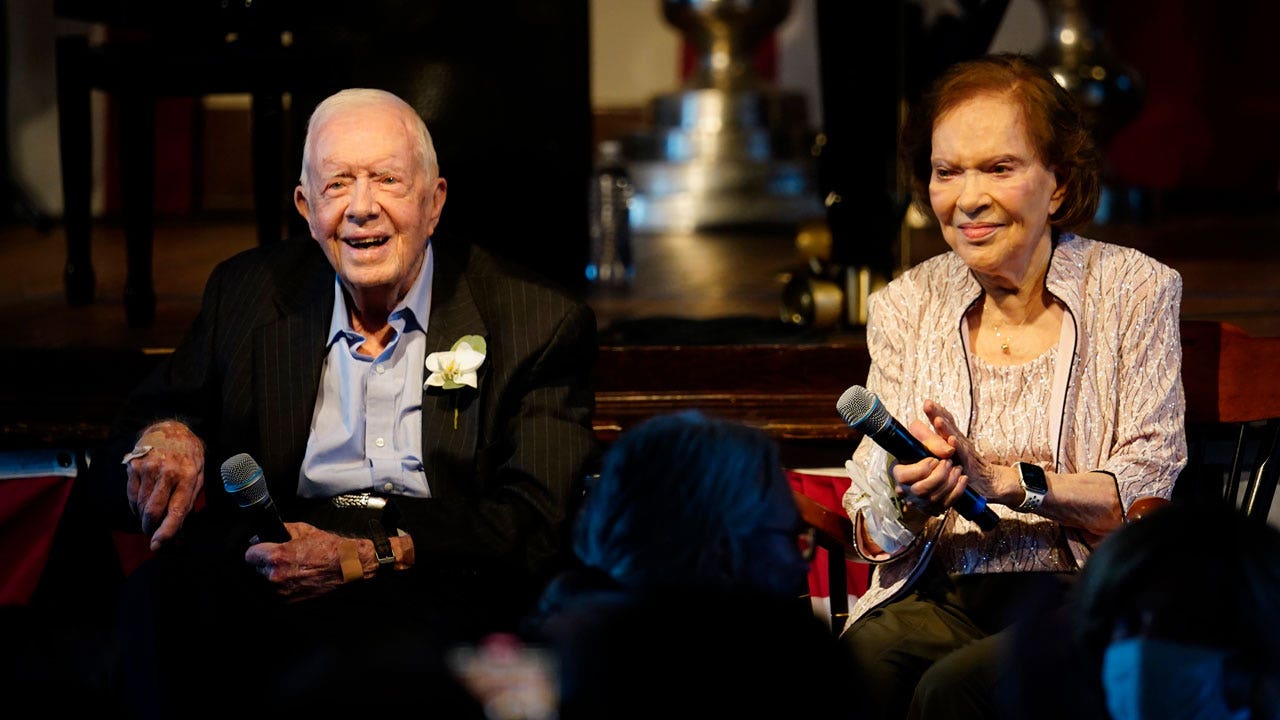When the Judicial Conference, the national policy-making body of the federal courts, announced last month that plaintiffs would no longer be able to engage in “judge-shopping” — choosing to file major lawsuits at courthouses where they could be sure that a sympathetic judge would hear them — the policy sounded like a done deal.
Instead, the policy turned out to be guidance, rather than a binding rule. Conservative politicians are encouraging judges to reject it, while Democrats are pushing to make the policy mandatory. And some Texas judges have stated that they will make up their own minds about what to do.
“It’s very unusual for a conference policy to become a political firestorm like this,” said Jeremy Fogel, a retired federal judge who served in the Northern District of California. “I think that is unprecedented.”
Mitch McConnell, the Senate minority leader, swiftly condemned the new policy, which would deprive conservative activists of a potent weapon in their legal arsenal, one that they have wielded with great success in rolling back abortion rights and some Biden administration policies.
“Democrats are salivating at the possibility of shutting down access to justice in the venues favored by conservatives,” he said on the Senate floor. Individual district courts, he noted in a letter to a chief judge in Kentucky, could choose to simply ignore the new policy.
And last week, Chief Judge David C. Godbey of the Northern District of Texas sent a letter that appeared to say his district would do exactly that. The judges of his district met on March 27, Judge Godbey wrote, and “the consensus was not to make any change to our case assignment process at this time.”
The Northern District of Texas is arguably the jurisdiction that has been used to greatest effect by conservatives looking for judges willing to advance their policy agenda with sweeping nationwide injunctions. It has several one-judge and two-judge divisions where appointees of President Donald J. Trump are sure to preside over any case filed there. These divisions have become magnets for conservative plaintiffs seeking favorable rulings on issues like health care, L.G.B.T.Q. rights and immigration.
But in an interview, Judge Sam A. Lindsay, one of the Northern District judges who attended the March 27 meeting, said Judge Godbey’s letter did not mean that the judges had made a decision to reject the policy. He said their meeting at the Earle Cabell Federal Building in Dallas had not been called to discuss how to assign cases randomly, as the Judicial Conference had recommended, but to interview magistrate judge candidates. The assignment issue, he said, came up briefly at the end.
“I want to make one thing unequivocally clear,” Judge Lindsay said. “There was no vote taken at the meeting. The only consensus we reached was to postpone discussion of the matter.”
In response to questions sent to Judge Godbey, the clerk of court, Karen Mitchell, said there were concerns about how to implement the policy — among them, determining which cases it would apply to and making the policy compatible with the court’s existing automated case assignment system.
Russell Wheeler, a judicial expert at the Brookings Institution, said that the Northern District’s concerns about implementation were understandable, up to a point.
“The devil is always in the details,” Mr. Wheeler said. “I would not fault the Northern District for taking a little while to implement it. But what I want to know is, are they going to implement it at all, or is it just a smoke screen?”
The Southern District of Texas seems to be taking a similar go-slow approach. “The policy is under advisement by the court,” Chief Judge Randy Crane said in a statement. “No immediate action is expected.”
One of the best-known recent instances of apparent judge-shopping occurred in the Northern District. An anti-abortion coalition incorporated itself in Amarillo, the location of one of the district’s single-judge divisions, and then filed a lawsuit there seeking a ban on the abortion drug mifepristone, in the near certainty that the case would be heard by Judge Matthew J. Kacsmaryk, an outspoken opponent of abortion. The judge granted a sweeping injunction that would ban mifepristone, but it has yet to take effect while an appeal is pending before the Supreme Court.
The attorney general of Texas, Ken Paxton, and other plaintiffs have often turned to small federal courthouses with one or two judges to file suits intended to block Biden administration policies, particularly on immigration.
The Judicial Conference policy was intended to make it harder for plaintiffs to cherry-pick judges by calling for the most consequential cases to be assigned randomly among all judges in a district, not just those in the particular division where the cases were filed. The American Bar Association endorsed the idea last year.
Judge Godbey’s letter struck a rare note of public discord in the collegial world of federal judges.
Amanda Shanor, who teaches law at the Wharton School and wrote a proposal for the Brennan Center for Justice on randomizing case assignments, called the letter’s apparent rejection of the policy “aggressive envelope pushing” by the Northern District. “It doesn’t reflect well on the district, or on the judiciary,” she said.
While conservatives make the most use of judge-shopping at the courthouse level, liberals use the tactic as well. Lawyers who are seeking to overturn Alabama’s ban on transgender care for minors may face discipline after a panel of three federal judges found that they had engaged in impermissible judge-shopping there, using procedural motions to try to get a suit before a particular judge.
And during the Trump presidency, advocates for immigrants often filed their lawsuits in federal courts in California, where the odds of being assigned a liberal judge at the district or appellate level was higher than elsewhere.
Not all judge-shopping has a partisan bent. At one point, a quarter of all patent cases nationwide were being heard by a single judge in Waco, Texas. After two U.S. senators raised concerns, the Western District of Texas changed its case assignment rules to randomly assign such cases, and the number filed in Waco plunged to 22 a month from 76, according to a 2024 study.
The clash over assignment practices suggests that the judiciary’s tradition of informal self-governance is facing stress from the bitter political fights being waged on its docket.
“We are all getting a lesson in the power of trial court judges,” said Judith Resnik, a professor at Yale Law School. “If I can pick my judge, I am picking the initial decision maker for my case. That’s enormously important, because that is where a case’s record is made. District court judges decide pretrial motions. They admit evidence or keep it out, and they instruct juries.”
In their initial announcement, Judicial Conference leaders appear to have made the new policy recommending random case assignment sound more binding than it actually was, because many district courts have followed such policies in the past and they were not expecting any pushback.
Instead, what seemed to be an attempt by senior judges to shore up the judiciary’s legitimacy turned into an invitation for the legislative branch to try to put a thumb on the scale. Each party is accusing the other of politicizing the judiciary.
Intended or not, the letter from Judge Godbey drew widespread attention because it was read as a firm rejection of the Judicial Conference’s policy. As Mr. Wheeler, the Brookings Institution expert, who was once deputy director of the Federal Judicial Center, put it: “Godbey’s letter says: ‘the Judicial Conference has recommended X. Well, we’ve decided not to do that, thank you very much.’”
If the Northern District of Texas does not adopt random assignment for consequential cases, the Judicial Conference could try to put forth a binding rule under the Rules Enabling Act. Such a rule would have to survive review by the Supreme Court and Congress, and some judges have questioned whether it would supersede the statutory authority of the district courts.






